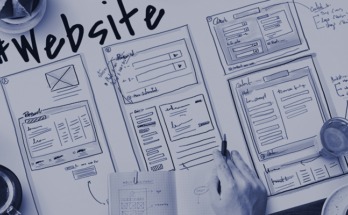There has been an expansion in the number of web-savvy customers as well as the development of new technology and inventive solutions thanks to the internet. As a result, both producers and customers now have an excellent chance to work together.
When it comes to purchasing goods and services online, eCommerce for manufacturing is reshaping the customer experience in a number of ways. Keep reading.
In the past ten years, manufacturers have shifted from using eCommerce as a transaction and communication platform to an integrated end-to-end platform that incorporates all chain stakeholders. This partnership is being fueled by manufacturers’ need to boost sales via product promotions. On the other hand, customers are on the hunt for highly customized online shopping experiences provided by a variety of eCommerce platforms.
Manufacturers may make use of these additional advantages of e-commerce
1. You’ll be able to enter new markets and reach a broader client base
It is estimated that about half of all B2B customers utilize the internet to discover information about goods or services, as well as specific solutions or suppliers. 62% of people favour internet information sources, while just 27% choose traditional media.
If you want to succeed in the digital world, you need an e-commerce plan. You’ll experience the best results if you use it in conjunction with digital marketing. You can hire a Magento eCommerce agency to make your task easier. As you plan your e-commerce strategy, here are some things to keep in mind.
- Your website, products/services, and other materials should be tailored to your customer’s needs and tastes.
- Search engine optimization guarantees that your website is discovered and accessible by customers.
- If you’re going for new markets, you’ll need to customize your items for them. This allows you to expand your reach without putting you at odds with your other business partners.
- Allowing your distributors access to unique finishes, colours, or even product lines will keep you from competing with them, so don’t do it.
2. Improved Performance
The integration of eCommerce platforms with back-end business systems, such as enterprise resource planning (ERP) solutions, provides manufacturers with tremendous advantages. Customers may easily make purchases online, and customer care representatives can concentrate only on providing customer service, rather than just receiving orders.
An important component of the ordering process is keeping eCatalogs up-to-date, which is essential to achieving greater efficiency. As a result, consumers will have no difficulty locating the appropriate component at the appropriate moment. It also eliminates the need to input information into several systems. As a consequence, shipping operations for manufacturers are improved, mistakes are reduced, and conversion rates are raised across the board.
3. Analytics
A company may conduct a full analytics campaign with ease thanks to the use of e-commerce in manufacturing. When it comes to eCommerce, manufacturers and distributors have never been able to track and assess their marketing campaigns and sales success as effectively as they do now. Better and better business choices may be made with data when it is integrated with a freight shipping application in the shopping cart and a transportation management system.
4. Personalized product catalogues are available for customers to browse through
Personalized product catalogues may further enhance the client experience and make the shopping process even more seamless.
In other words, when a consumer does an item search, they may receive search results that are tailored to their previous purchases and other information about the customer (e.g. company size, sector, etc). Items that consumers with comparable requirements and characteristics bought might also be included in the list.
For customers, this streamlines the purchase process, making it simpler and quicker to locate what they’re looking for. You may also cross-sell and up-sell items using this method.
5. Bring in new clients
As a result of search engines, such as Google or Bing, prospective clients may discover you. Nearly half of B2B buyers perform online searches to find information, solutions, and suppliers throughout the purchasing process.
Having a strong online presence that is search engine optimized is thus critical to reaching new customers and remaining one step ahead of the competition. The information you offer on the internet may then be found by clients using search engines like Google and Bing.
6. Enlarge Your Profit Margin
Businesses were in the process of moving online, but the pandemic has hastened the digitalization process and shown that shifting online is the only alternative to combat declining physical revenue. Traditional companies get additional clients as a result of an online shop. They may be able to build a larger customer base and make more sales if they implement an effective SEO strategy and create a mobile-friendly store.
7. Earnings that Aren’t Active
Back-office chores may be automated and customers can service themselves if a manufacturing e-commerce site is properly structured. Increased productivity and lower costs are two benefits of automation. As a consequence, firms can now sell their products around the clock and their employees may look for alternative ways to make money.
8. Having a Creative Mindset
It’s liberating to find new clients outside the manufacturing industry’s established channels. If they have a concept for a product that looks great, they act on it by doing an analysis of the product and its iterations through time to ensure that the product meets the needs and expectations of their customers.
9. Expanding Your Business into New Markets
In addition to significantly improving your digital marketing efforts, using a successful e-commerce platform can open up previously unreachable international market opportunities.
Think about expanding your small business’s consumer base into other areas when you begin to see some increase in revenue potential. However, it is expensive and dangerous to establish production facilities or to hire agents in other countries. From the comfort of your own home, an e-commerce platform may help you take your business global.
10. Enhances Productivity
E-Commerce applications benefit from the integration of ERP (Enterprise Resource Planning) and other corporate back-end systems. Customers have the flexibility to place orders online at any time and from any location. Customers might also concentrate on aspects such as shipping prices and delivery timeliness in customer service departments.
To summarize, there are several advantages to integrating an eCommerce manufacturing strategy with your existing sales platform and outsourcing a UX design agency. Improved sales, a stronger connection between the producer and the distributor, a greater understanding of the brand, and higher manufacturing efficiency are all examples of these benefits.




